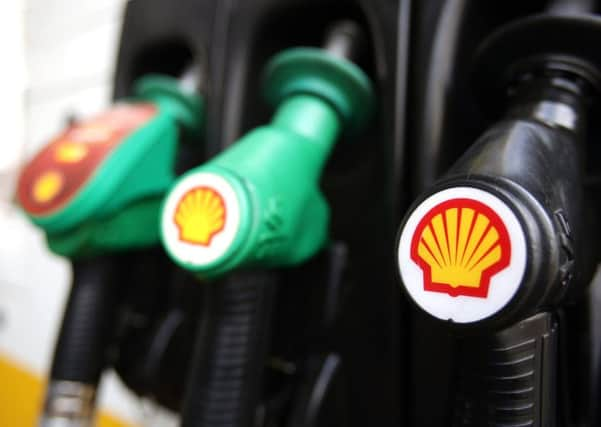Oil giant Shell reveals 8% slide in annual profits
This article contains affiliate links. We may earn a small commission on items purchased through this article, but that does not affect our editorial judgement.


The figures came in below analysts’ expectations and compare with a $3.8bn profit last year. The results were dragged down by a lacklustre fourth quarter, which saw profits fall 44 per cent to $1bn.
Shell’s results come despite oil prices recovering from around $27 a barrel last January to more than $55 a barrel now.
Advertisement
Hide AdAdvertisement
Hide AdChief executive Ben van Beurden said: “We are reshaping Shell and delivered a good cash flow performance this quarter with over $9bn in cash flow from operations.
“Debt has been reduced and, for the second consecutive quarter, free cash flow more than covered our cash dividend.”
Excluding exceptional items, profits fell 37 per cent to $7.18bn for the year.
Shell, which completed a $52.6bn acquisition of BG Group last year, is embarking on an ambitious cost-cutting drive and a $30bn divestment initiative.
Earlier this week Shell announced it will sell off a package of North Sea assets for up to $3.8bn to smaller rival Chrysaor.
Mr van Beurden said: “We are operating the company at an underlying cost level that is $10bn lower than Shell and BG combined only 24 months ago.
“We are gaining momentum on divestments, with some $15bn completed in 2016, announced, or in progress, and we are on track to complete our overall $30bn divestment programme as planned.”
Advertisement
Hide AdAdvertisement
Hide AdThe results showed that Shell’s integrated gas division saw earnings fall to $3.7bn compared with $5bn last year.
Its upstream oil and gas producing unit booked losses of $2.7bn while downstream profit – everything from refining and minerals to marketing – fell from $9.7bn to $7.2bn.
The company said it plans to pump $25bn into “high-quality, resilient projects” in 2017. “Others are talking about getting back to growth; we’re actually doing it now,” Shell’s chief financial officer Simon Henry, who departs the oil group next month after seven years in the job, said.
Mr van Beurden said that he was not prepared to offer oil price forecasts – “because we are not very good at that” – but added that he expected the point of peak global oil demand “sometime in the 2030s” and that gas demand would continue to grow after that: “I don’t expect there to be a sudden falling off of demand for oil after that - it will be a flat peak.”
